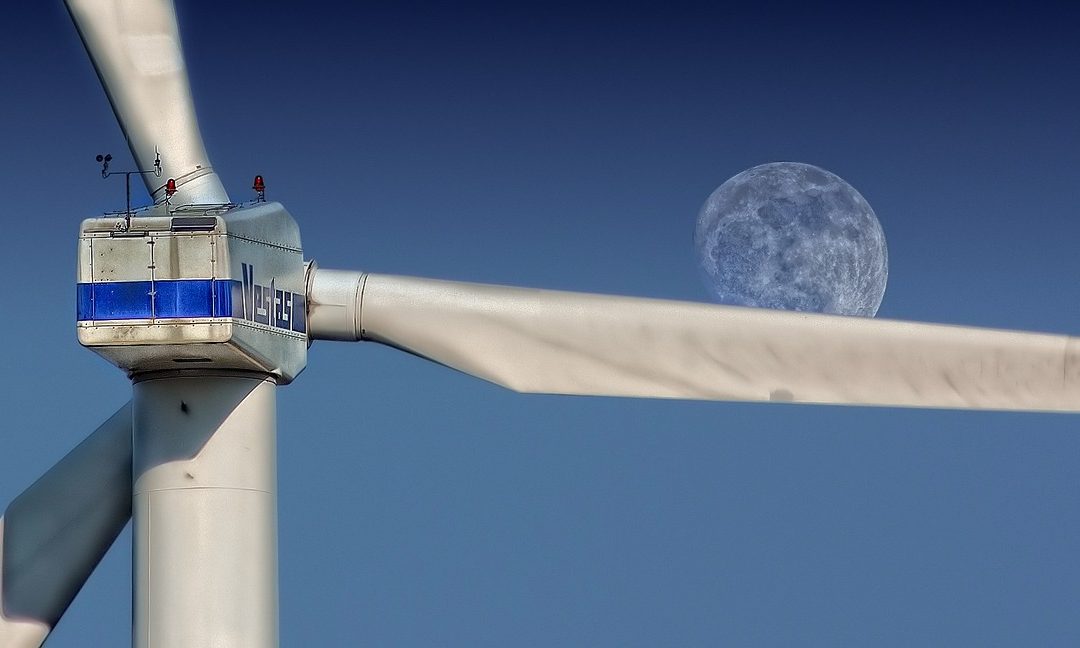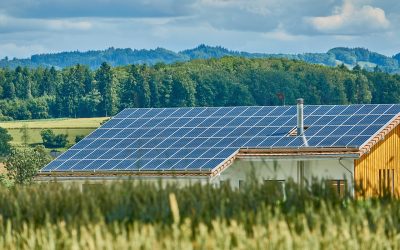So you’re interested in the world of solar energy and wondering about the opportunities it holds in terms of employment. Look no further! This article is a comprehensive guide to solar installation and maintenance jobs. From the exciting field of solar panel installation to the essential work of maintaining and servicing solar systems, we’ll explore the different roles, skills required, and the promising future of this burgeoning industry. Whether you’re considering a career change or simply curious about the possibilities, keep reading to discover the ins and outs of solar installation and maintenance jobs.

Overview of Solar Installation and Maintenance Jobs
Solar installation and maintenance jobs play a crucial role in the renewable energy industry. As the demand for clean and sustainable energy continues to grow, the importance of solar installations cannot be overstated. These jobs involve the installation, maintenance, and repair of solar panels and systems, ensuring their efficient operation and longevity. With the increasing adoption of solar energy worldwide, there are abundant job opportunities in the solar industry, making it an attractive career choice for those interested in green technology and environmental sustainability.
Importance of Solar Installations
Solar installations are essential for harnessing the power of the sun and converting it into electricity. Solar energy is a renewable resource that is abundant, clean, and sustainable. By harnessing solar power, we can significantly reduce our reliance on fossil fuels, decrease greenhouse gas emissions, and mitigate climate change. Solar installations also contribute to energy independence, allowing individuals, businesses, and communities to generate their own clean energy. Moreover, solar power can help reduce electricity bills and stimulate local economies by creating jobs in the solar industry.
Growing Demand for Solar Installations
The demand for solar installations has been experiencing substantial growth in recent years. This can be attributed to several factors, including increasing concern about climate change, rising energy costs, and advancements in solar technology. As individuals and businesses become more aware of the environmental and financial benefits of solar energy, the adoption of solar installations continues to rise. Additionally, government incentives and favorable policies have encouraged the growth of the solar industry, creating a favorable business environment for solar installers.
Job Opportunities in the Solar Industry
The solar industry offers diverse job opportunities across various sectors. One of the main job roles is that of a solar installer, responsible for the installation and maintenance of solar panels and systems. Solar installation companies, electrical contractors, and renewable energy firms are major employers in this field. Other job roles include solar project managers, system designers, sales representatives, and technicians specializing in maintenance and repair. These job opportunities cater to individuals with different skill sets and qualifications, providing a wide range of career options in the solar industry.

Types of Solar Installation Jobs
Solar installation jobs can be classified into three main categories: residential, commercial, and utility-scale installations.
Residential Solar Installation
Residential solar installation involves the installation of solar panels on rooftops or ground-mounted systems for individual homes. As more homeowners adopt solar power as a means of sustainable energy, the demand for residential solar installation has skyrocketed. Residential solar installers work closely with homeowners to assess their energy needs, design and install the appropriate solar system, and ensure its optimal performance. The residential sector offers a rewarding opportunity for solar installers to directly impact homeowners’ lives and contribute to the growth of clean energy in communities.
Commercial Solar Installation
Commercial solar installations are carried out on buildings and properties used for commercial purposes, such as offices, schools, hospitals, and retail spaces. The scale of commercial solar installations is typically larger than residential installations, requiring in-depth planning, design, and installation expertise. Commercial solar installers collaborate with business owners, architects, and engineers to develop customized solar solutions that meet the energy requirements of commercial properties. These installations help businesses reduce their carbon footprint, lower their energy costs, and demonstrate their commitment to sustainability.
Utility-Scale Solar Installation
Utility-scale solar installations refer to large-scale solar power plants that generate electricity for the grid. These installations can cover vast areas of land and involve the installation of thousands of solar panels. Utility-scale solar installers work on complex projects, requiring expertise in infrastructure development, electrical engineering, and project management. These installations contribute significantly to the generation of clean energy on a large scale and play a vital role in the transition to a low-carbon economy.
Skills and Qualifications for Solar Installers
Solar installers require a combination of technical knowledge, mechanical and electrical skills, and safety training to perform their job effectively. As solar installations involve working with complex electrical systems and heights, it is crucial for solar installers to possess the necessary qualifications and expertise.
Technical Knowledge and Expertise
Solar installers must have a comprehensive understanding of photovoltaic (PV) systems and solar panel technology. They should be familiar with the different types of solar panels, inverters, and mounting systems available in the market. Knowledge of electrical systems, wiring diagrams, and electrical codes is also essential. Solar installers should stay updated on the latest advancements in solar technology to ensure the installation of efficient and reliable solar systems.
Electrical and Mechanical Skills
Solar installers need to have strong electrical and mechanical skills to install and connect solar panels effectively. This includes knowledge of electrical circuitry, wiring, and the ability to troubleshoot and resolve electrical issues. Mechanical skills are necessary for mounting and positioning solar panels correctly, as well as ensuring the structural integrity of the installation. Attention to detail and precision are critical when working with delicate electrical components.
Safety Training and Certifications
Safety is of utmost importance in the solar industry, given the nature of the work involved. Solar installers should receive proper safety training to minimize the risk of accidents and ensure compliance with safety standards. Training in working at heights, electrical safety, and fall protection is essential. Additionally, solar installers should obtain relevant certifications such as the Occupational Safety and Health Administration (OSHA) 10-hour Construction Safety Training and the North American Board of Certified Energy Practitioners (NABCEP) certification, which demonstrates their expertise in solar installation.

Solar Installation Process
The solar installation process comprises several stages, starting from the initial site assessment to the final commissioning and testing of the solar system. Each stage plays a crucial role in ensuring the successful installation of a solar system.
Site Assessment and Design
The first step in the installation process is the site assessment, where solar installers evaluate the suitability of a location for a solar system. Factors such as roof condition, shade analysis, and the orientation of the site are assessed to determine the system’s potential energy output. Installers work closely with homeowners or businesses to understand their energy needs and design a solar system that meets those requirements efficiently. They analyze factors such as available roof space, solar radiation, and electrical capacity to create an optimal design.
Permitting and Planning
Once the site assessment and design are complete, solar installers help clients navigate the permitting and planning processes. This involves obtaining the necessary permits and approvals from local authorities and utility companies. Installers ensure compliance with building codes and regulations to ensure the safety and legality of the solar installation. They work closely with regulatory bodies and utility companies to coordinate the interconnection of the solar system with the electrical grid.
Installation and Wiring
After obtaining the necessary permits and approvals, solar installers proceed with the installation phase. This includes mounting the solar panels on the designated surface, whether it is a rooftop or a ground-mounted system. Installers carefully position and align the solar panels to maximize their exposure to sunlight. They then connect the solar panels to the inverter, which converts the DC power generated by the panels into AC power for use in electrical systems. Wiring the solar system correctly is crucial to ensure the smooth flow of electricity and prevent any safety hazards.
Commissioning and Testing
Once the installation is complete, solar installers perform commissioning and testing to ensure the solar system’s functionality and safety. They verify the proper operation of the solar panels, inverters, and other components. In addition, they conduct electrical tests and inspections to ensure that the system meets all safety and performance standards. These tests may include voltage checks, insulation resistance tests, and even thermal imaging to detect any potential issues. Only after successful commissioning and testing can the solar system be considered fully operational.
Challenges and Considerations in Solar Installations
Solar installations come with their own set of challenges and considerations that need to be addressed for a successful installation and operation of the solar system.
Roof Condition and Orientation
The condition and orientation of the roof play a significant role in the efficiency and effectiveness of a solar installation. Roofs with structural issues or inadequate load-bearing capacity may require additional reinforcement to accommodate the weight of the solar panels. Moreover, roofs with a complex layout or limited available space may pose challenges for optimal panel placement, affecting the system’s energy output. Solar installers must assess these factors during the site assessment and design phase to ensure a suitable installation.
Electrical Grid Compatibility
Solar installations require proper integration with the electrical grid to ensure seamless operation and energy transfer. In some cases, the electrical grid may not have the necessary capacity to accommodate a solar system without upgrades or modifications. Solar installers must coordinate with utility companies to ensure that the grid can handle the additional energy generated by the solar system. This may involve assessing transformer capacity, upgrading electrical infrastructure, or installing additional equipment such as smart meters.
Shade and Obstruction Issues
Shade and obstructions, such as nearby buildings, trees, or chimneys, can significantly impact the performance of a solar system. Even a small amount of shade on a solar panel can result in a significant loss of energy production. During the site assessment, solar installers analyze the shading patterns and identify potential sources of obstruction that may affect the solar system’s output. They then design the system to minimize shade impact through panel placement or the use of shading mitigation techniques such as microinverters or power optimizers.
Solar Maintenance and Repair Jobs
While solar installations are built to last, regular maintenance and occasional repairs are necessary to ensure optimal system performance and longevity. Solar maintenance and repair jobs are crucial for maximizing energy production and minimizing downtime.
Importance of Solar Maintenance
Regular maintenance is essential for the continued efficiency and reliability of solar systems. Dust, debris, and pollen can accumulate on solar panels, reducing their efficiency. Periodic cleaning ensures optimal sunlight absorption and maximizes energy generation. Maintenance also includes inspecting electrical connections, checking for any signs of wear or damage, and verifying the performance of the inverter. By maintaining the system at regular intervals, solar owners can avoid potential issues and prolong the lifespan of their installation.
Regular Cleaning and Inspection
Solar maintenance technicians perform routine cleaning and inspection of solar panels. They remove dirt, leaves, and other debris that may hinder the panels’ efficiency. Cleaning is typically done using non-abrasive materials and water to prevent damage to the panels. Inspections involve thorough visual checks of the panels and electrical components to identify any signs of wear, damage, or malfunction. Technicians also ensure that all electrical connections are secure and free from corrosion.
Troubleshooting and Repair
Inevitably, solar systems may encounter issues that require troubleshooting and repair. Solar maintenance technicians are responsible for identifying and resolving these problems. This can include diagnosing electrical or mechanical malfunctions, detecting faulty components, and replacing or repairing them as necessary. Troubleshooting may involve utilizing specialized tools and equipment to pinpoint the source of the issue. Technicians should have a solid understanding of electrical systems and solar technology to effectively address these challenges.
Role of Solar Maintenance Technicians
Solar maintenance technicians play a crucial role in ensuring the continued performance of solar systems. They are responsible for conducting regular maintenance tasks, monitoring system performance, and performing necessary repairs or upgrades.
Scheduled Maintenance Tasks
Solar maintenance technicians follow a proactive approach by conducting scheduled maintenance tasks on solar systems. This includes routine cleaning of solar panels, checking electrical connections, inspecting wiring, and verifying the system’s overall health. Technicians often create and follow maintenance schedules to ensure that all necessary tasks are completed promptly. By adhering to these schedules, they can maintain the performance and longevity of the solar installation.
Monitoring and Performance Analysis
Solar maintenance technicians utilize specialized monitoring and data analysis tools to assess the performance of the solar system. They monitor energy production, track output trends, and analyze system efficiency. By analyzing this data, technicians can identify any anomalies or potential issues that may affect the system’s performance. This allows for timely interventions, ensuring that energy generation remains optimal. Technicians also make recommendations for system improvements or upgrades based on their analysis.
Component Replacement and Upgrades
When components of a solar system reach the end of their lifespan or become faulty, solar maintenance technicians are responsible for their replacement or repair. This may include swapping out old or damaged solar panels, inverters, or wiring. Technicians ensure the compatibility and proper functioning of the new components with the existing system. They may also recommend upgrades or system expansions based on technological advancements or increased energy needs. Technicians work closely with solar installation companies or manufacturers to source and install the necessary components.
Growth and Future Prospects in Solar Jobs
The solar industry is experiencing rapid growth and offers promising future prospects. Several factors contribute to the positive outlook of solar jobs:
Increasing Solar Installations Worldwide
Solar installations have seen a significant increase globally, driven by the need for clean energy and the falling costs of solar technology. Governments, businesses, and individuals are recognizing the numerous benefits of solar energy, leading to a surge in installations. This increased demand for solar installations translates into a greater need for skilled solar professionals, creating job opportunities in various regions.
Government Support and Renewable Energy Policies
Governments around the world are prioritizing renewable energy and implementing favorable policies to promote its adoption. Incentives such as tax credits, grants, and feed-in tariffs encourage individuals and businesses to invest in solar installations. These policies ensure a stable market for solar jobs and foster growth in the solar industry. Continued government support and favorable regulatory environments are expected to sustain the demand for solar professionals in the future.
New Technological Advancements
Technological advancements in solar energy are driving innovation and opening up new opportunities in the industry. The evolution of solar panel design, materials, and energy storage systems is increasing the efficiency and reliability of solar installations. As technology improves, the cost of solar energy decreases, making it more accessible to a wider range of consumers. These advancements fuel the growth of the solar industry, creating a need for skilled professionals to design, install, and maintain advanced solar systems.
Training and Education for Solar Jobs
To pursue a career in solar installations and maintenance, specialized training and education are necessary to acquire the required skills and knowledge.
Solar Installation Training Programs
Many institutions and organizations offer training programs specifically tailored to solar installation. These programs provide comprehensive education on photovoltaic systems, safety practices, electrical wiring, and system design. Participants gain hands-on experience in installing solar panels, working with inverters, and troubleshooting common issues. Training programs may also cover topics such as site assessment, permitting, and system efficiency. Completing a solar installation training program equips individuals with the foundational skills necessary for a career in the solar industry.
Certifications and Licenses
Obtaining relevant certifications and licenses demonstrates proficiency and credibility in the solar industry. The North American Board of Certified Energy Practitioners (NABCEP) offers certification programs for solar professionals, including the NABCEP PV Installation Professional certification. This certification is highly regarded and recognized as a standard for solar installers. Additionally, electricians working in the solar industry may require specific licenses or certifications, depending on local regulations. These certifications and licenses enhance job prospects and establish professional credibility.
Continuing Education and Professional Development
Solar technology is continuously evolving, making it essential for solar professionals to engage in continuing education and professional development. Staying updated on the latest advancements, industry best practices, and safety standards is crucial for maintaining knowledge and relevance in the field. Solar installers can attend conferences, workshops, and webinars to expand their expertise and network with industry experts. Continued learning and professional development contribute to career growth and help professionals adapt to the ever-changing solar landscape.
Job Opportunities and Salary Potential
The solar industry offers a wide range of job roles with varying salary potential. The availability of job opportunities and salary ranges may differ based on factors such as location, experience, and qualifications.
Job Roles in the Solar Industry
Solar installation companies, electrical contractors, and renewable energy firms are key employers in the solar industry. Job roles include:
- Solar Installers: Responsible for the installation and maintenance of solar systems, ensuring their efficient operation.
- Solar Project Managers: Oversee the entire process of solar installations, from initial design to final commissioning.
- System Designers: Create customized solar system designs that meet the specific energy needs of clients.
- Sales Representatives: Educate potential customers about the benefits of solar energy and facilitate the sale of solar installations.
- Solar Maintenance Technicians: Conduct regular maintenance, inspections, and repairs of solar systems.
These job roles offer a spectrum of career opportunities for individuals interested in the solar industry.
Company Types Hiring Solar Professionals
Solar professionals can find employment in various types of companies, including:
- Solar Installation Companies: Specialize in the installation, maintenance, and servicing of solar systems.
- Electrical Contractors: Incorporate solar installations into their offerings, providing a comprehensive range of electrical services.
- Renewable Energy Firms: Focus on the development and promotion of renewable energy solutions, including solar installations.
- Manufacturing Companies: Produce solar panels, inverters, and other solar components, hiring professionals for research, development, and testing.
The solar industry offers a diverse range of employment options, catering to different interests and skill sets.
Salary Range for Solar Installation and Maintenance Jobs
Salary potential in the solar industry varies depending on factors such as job role, experience, location, and company size. Solar installers typically earn an average salary ranging from $40,000 to $60,000 per year. However, salaries can exceed $100,000 for experienced solar project managers or senior technicians. Factors such as the demand for solar installations, regional incentives, and market conditions can influence salary ranges. Additionally, individuals with niche expertise, such as energy storage systems or solar design, may command higher salaries due to their specialized knowledge.
In conclusion, solar installation and maintenance jobs offer exciting opportunities in the rapidly growing renewable energy industry. With the increasing demand for solar installations worldwide, these jobs play a vital role in transitioning to a cleaner and more sustainable energy future. Solar professionals require technical knowledge, electrical and mechanical skills, and safety training to excel in their roles. The solar installation process involves site assessment, permitting, installation, and commissioning. Challenges such as roof conditions, electrical grid compatibility, and shade issues need to be considered and addressed. Regular maintenance and occasional repairs are necessary to ensure optimal system performance. Solar maintenance technicians are responsible for scheduled maintenance, monitoring system performance, and component replacement. The future prospects for solar jobs are promising, driven by increasing solar installations, government support, and technological advancements. Training programs, certifications, and continuing education are available to acquire the necessary skills and qualifications. Job opportunities and salary potential vary based on job roles, company types, and market conditions. The solar industry provides a range of career options and the opportunity to contribute to a sustainable future while enjoying the benefits of a growing industry.










